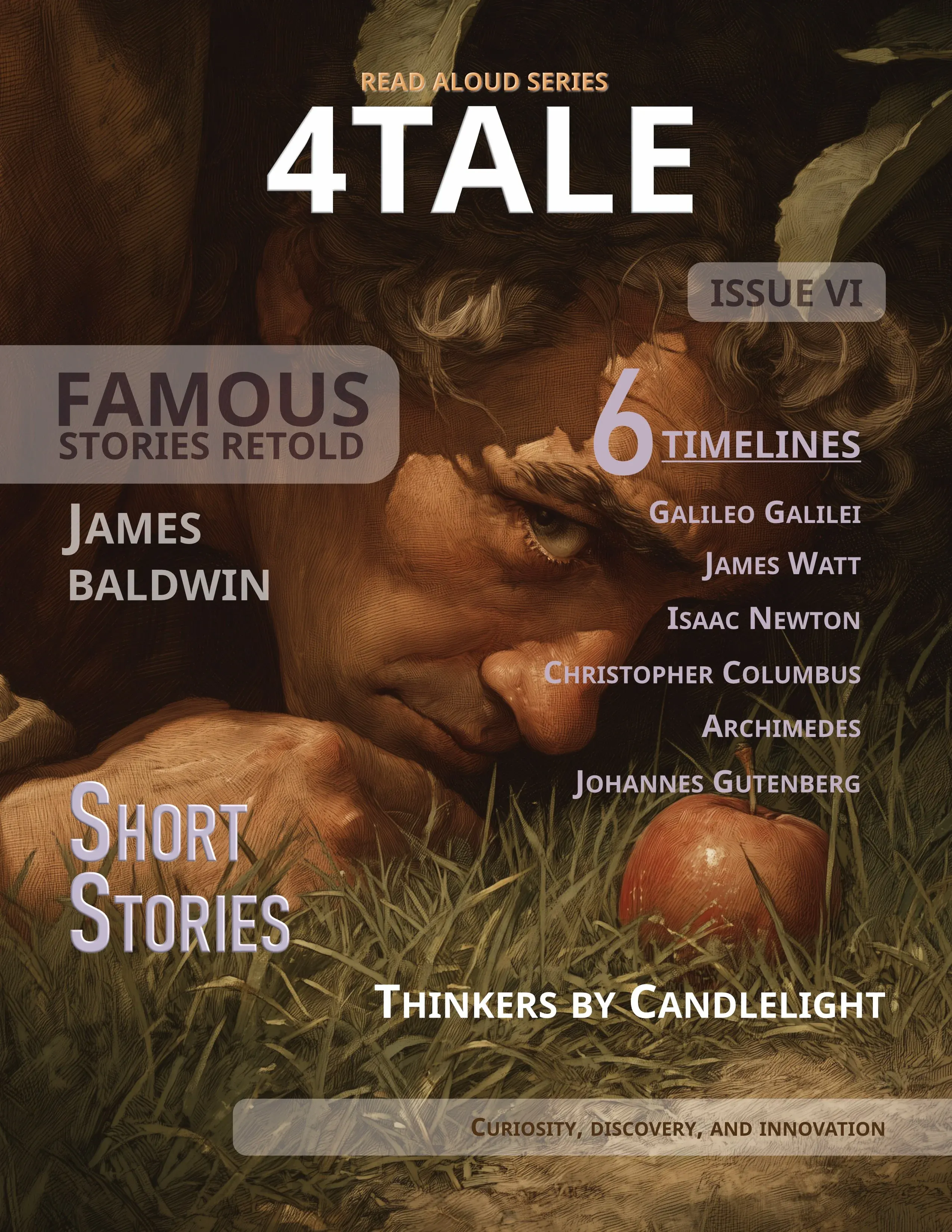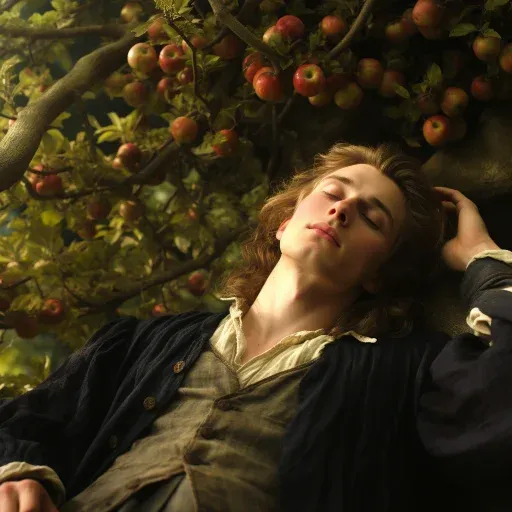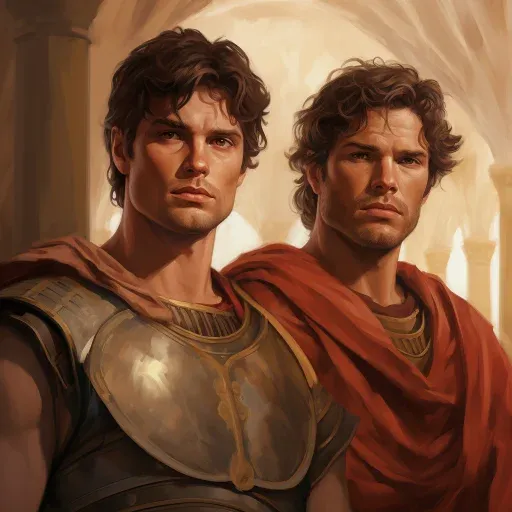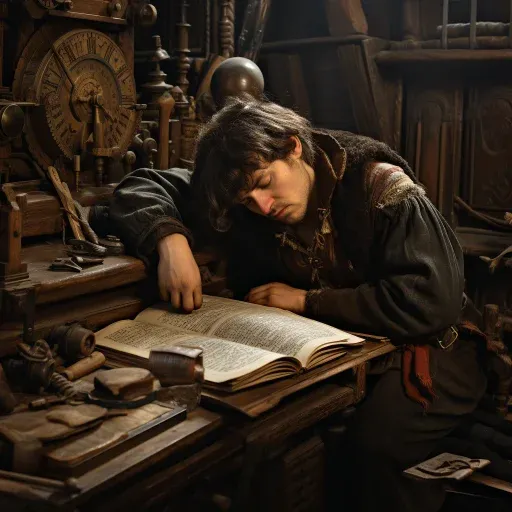BY JAMES BALDWIN
The First Printer
Famous Stories Retold: Story 8 of 30
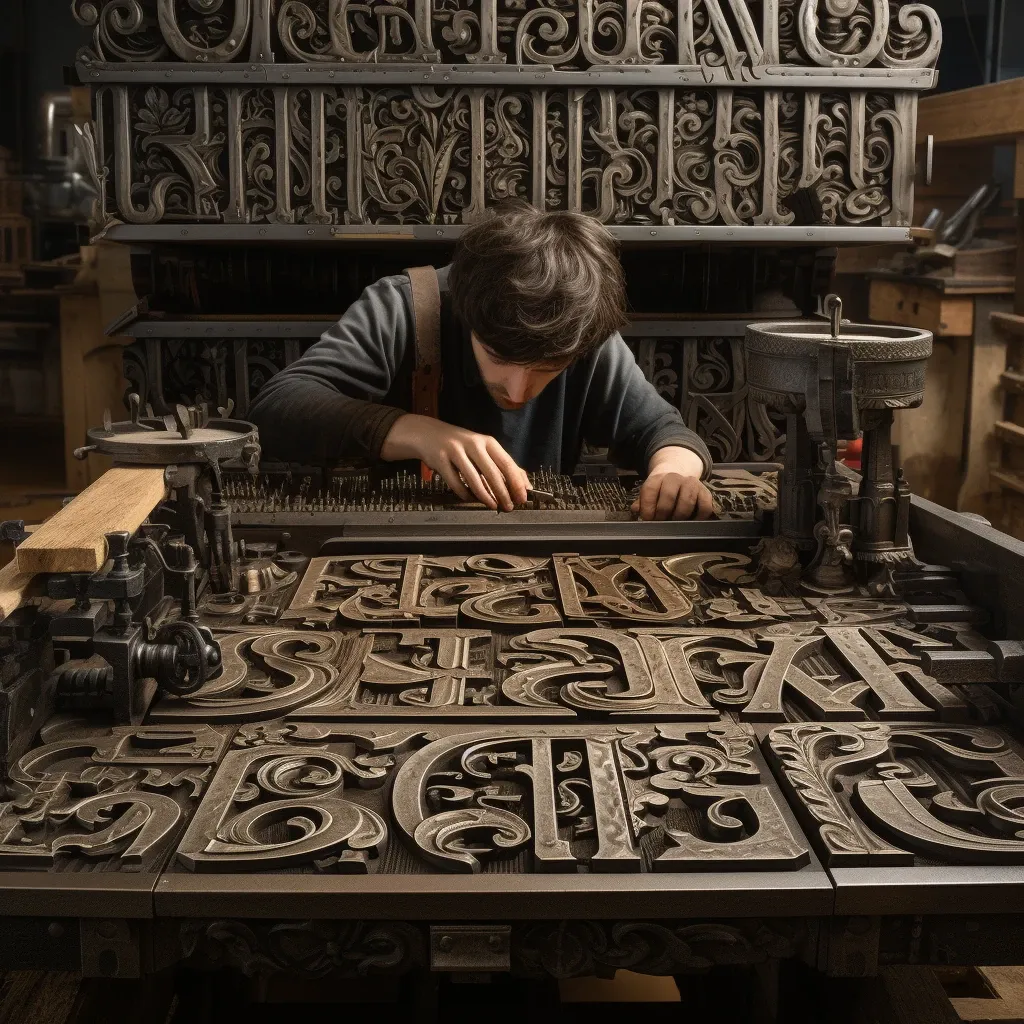
Heading

Moveable Type: He developed moveable type, which allowed for the efficient and reusable arrangement of individual letters.
First Printed Book: The first major book printed with his press was the Gutenberg Bible.
A good book we like, we explorers. That is our best amusement, and our best time killer
- Roald Amundsen, Explorer
Gutenberg's Legacy: The Revolutionary Printing Evolution
Imagine a world without books, with knowledge locked only within the minds of the privileged few. Nearly half a millennium ago, a humble traveler by the name of John Gutenberg embarked on a transformative journey, with the desire to make knowledge accessible to all. This article takes you back in time, tracing Gutenberg's incredible voyage, revealing a turning point in human history that changed the course of knowledge dissemination forever. So, brace yourself as we unearth the fascinating beginnings of the printing press, and explore its profound impact on society.
A Mysterious Stranger in Haarlem
In the peaceful setting of Haarlem, a town nestled in the Netherlands, a stranger arrived one midsummer evening, nearly five centuries ago. This unfamiliar face stirred the curiosity of the townsfolk, as travelers were a rarity in this quaint old town. Dressed in humble attire, carrying a knapsack and covered in dust, he was a picture of a lone voyager who had traversed far and wide. Stopping at a local inn, he introduced himself as John Gutenberg, a native of Mayence. His youthful exuberance and thirst for knowledge intrigued the locals, setting the stage for a journey that would revolutionize the world.
The Ignorance of the Common People and the Need for Books
John Gutenberg, the mysterious traveler, was not just a wanderer; he was a keen observer of people and societies. His travels across Genoa, Venice, Rome, Switzerland, Germany, and his proposed journey to France, revealed an alarming truth to him – the widespread ignorance of the common people. The lack of knowledge about their own lands and the world at large, their unawareness of historical events, and the absence of any other form of enlightenment deeply troubled Gutenberg. He voiced a poignant idea, one that would soon shape his destiny, the need to make books plentiful and cheap, to alleviate the ignorance of the common people and empower them with knowledge.
Dive Deeper 'Timeless Wisdom' Podcast
Video with Captions and Visualizer
The Revelation of Laurence Coster
In his quest for knowledge and his desire to disseminate it, Gutenberg found hope in the quiet town of Haarlem. The innkeeper revealed the existence of a man who made books in a novel way, making them affordable and accessible. That man was Laurence Coster, known in the town as the church's coster. This revelation sparked a fire in Gutenberg, driving him to seek out the innovative Coster. What transpired next was a meeting of minds, a sharing of ideas that would change the course of history.
Laurence Coster's Innovative Method: Printing
Laurence Coster's innovation was a game-changer in the world of information dissemination. He had created a novel method of creating books efficiently and inexpensively through what he referred to as 'printing'. This method involved the use of types, which were individual pieces of wood that were meticulously carved with a penknife into the shapes of letters.
Coster would lay out these types, arrange them accordingly to form words, sentences, and finally, pages. These were then applied with ink and pressed against paper to create a printed page. This ingenious process dramatically reduced the time it took to create a book, from what would usually take hours of manual writing to just a matter of minutes.
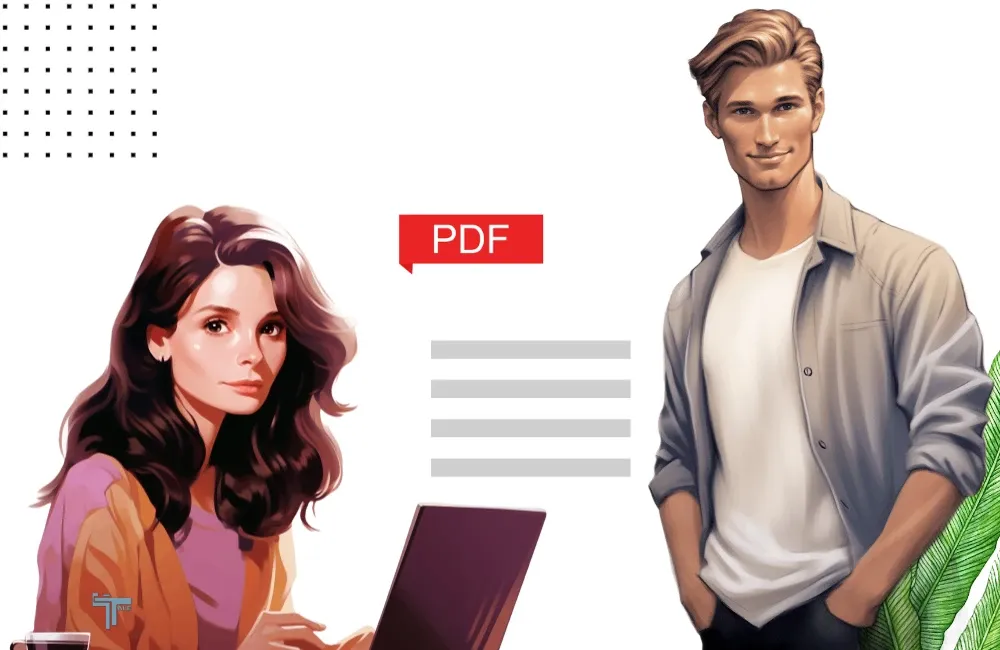
Gutenberg's Fascination and Inspiration
The young traveler, John Gutenberg, was profoundly stirred by Coster's invention. He saw in it a solution to the problem he had been contemplating - the widespread ignorance of the common people due to their lack of access to knowledge. Seeing the potential of printing, Gutenberg was inspired to further explore and experiment with this new technology.
He was particularly moved by Coster's story of how he stumbled upon the idea of printing. The simplicity of carving letters onto pieces of bark, which then left an imprint on paper, sparked in Gutenberg's mind the vision of making knowledge accessible to all, regardless of their social status.
Gutenberg's Improvement and Success: The Birth of Modern Printing
Upon leaving Haarlem, Gutenberg set out to Strasburg, eager to refine Coster's method of printing. He dedicated himself to experimenting and improving upon Coster's original design. He replaced the wooden types with ones made of soft metal, which proved to be more effective. He also developed a way to mix ink so that it would not spread when pressed, allowing for clearer and sharper prints.
Gutenberg's modifications led to an enhanced version of printing that was faster and more affordable, thus making books more accessible to the common people. This achievement marked the birth of modern printing, a pivotal moment in history that revolutionized the way knowledge was shared and consumed, shaping the world as we know it today.
Conclusion
The remarkable journey of John Gutenberg revolutionized the world of knowledge dissemination. His fascination with the primitive printing method of Laurence Coster, along with his inherent determination, led to the birth of modern printing. This new era brought books within the reach of the common man, significantly reducing ignorance and inequality. Gutenberg's invention served as a beacon of enlightenment, forever transforming society. His story is a testament that innovation can indeed usher in a revolution, shattering the confines of privilege and spreading the light of knowledge to all corners of the world.

